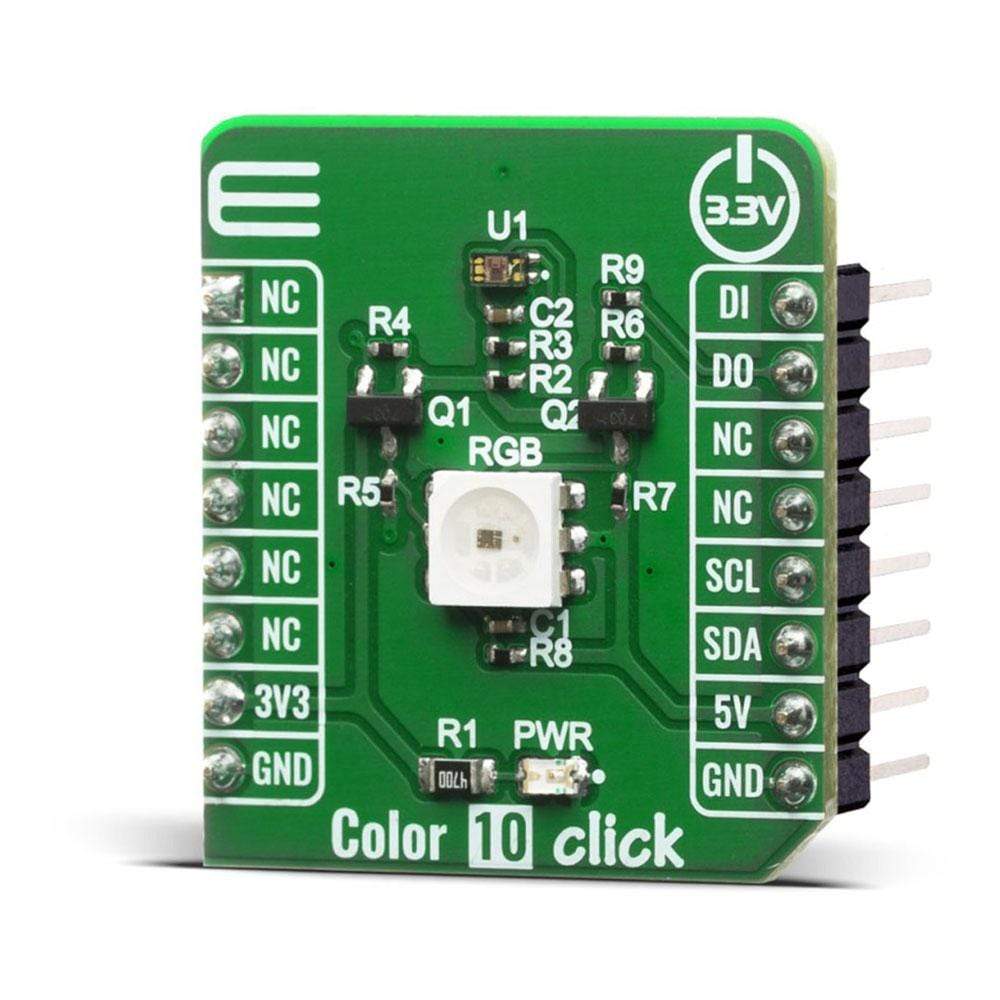
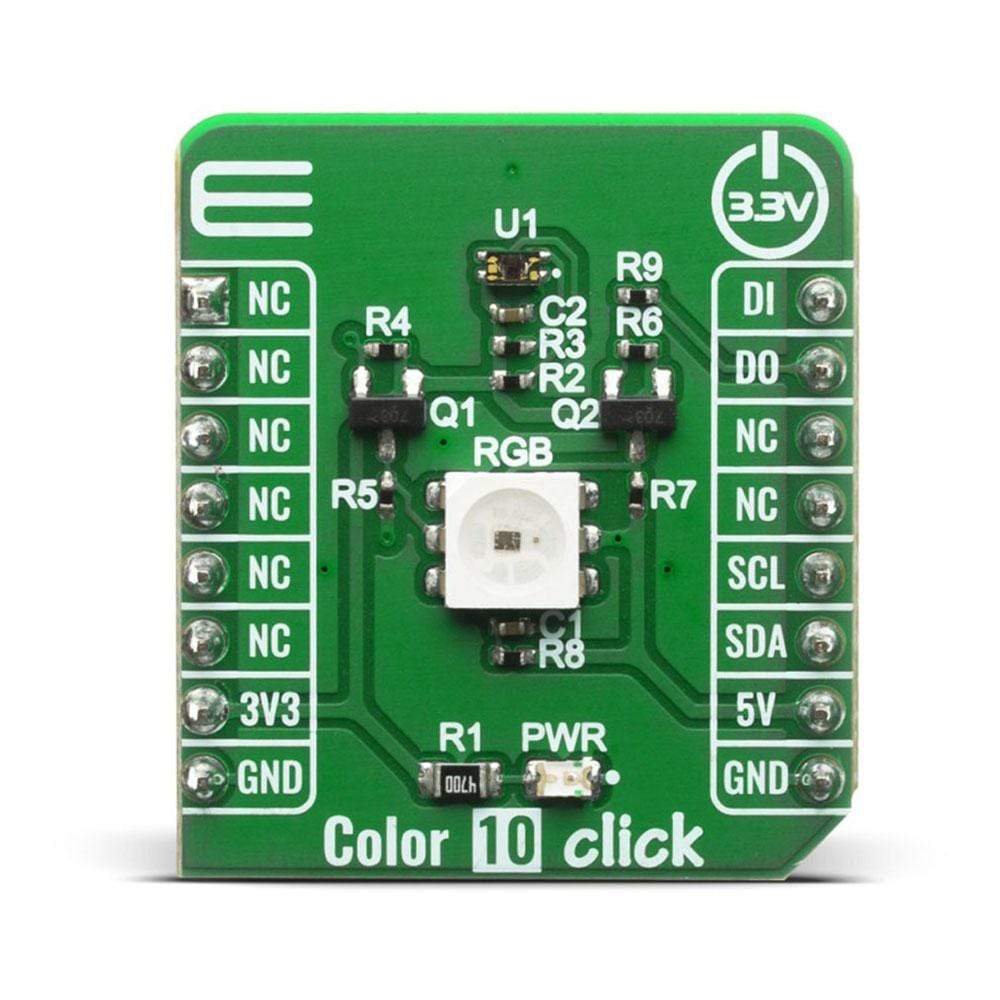
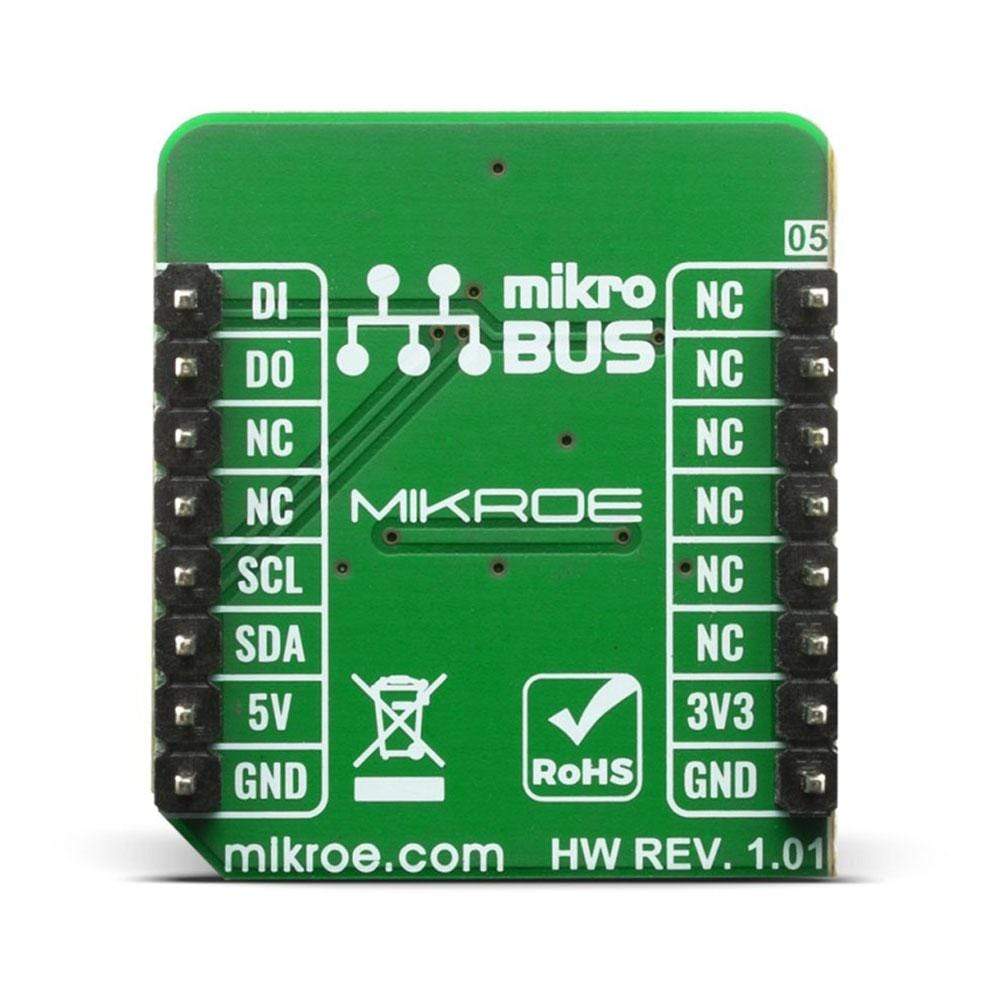
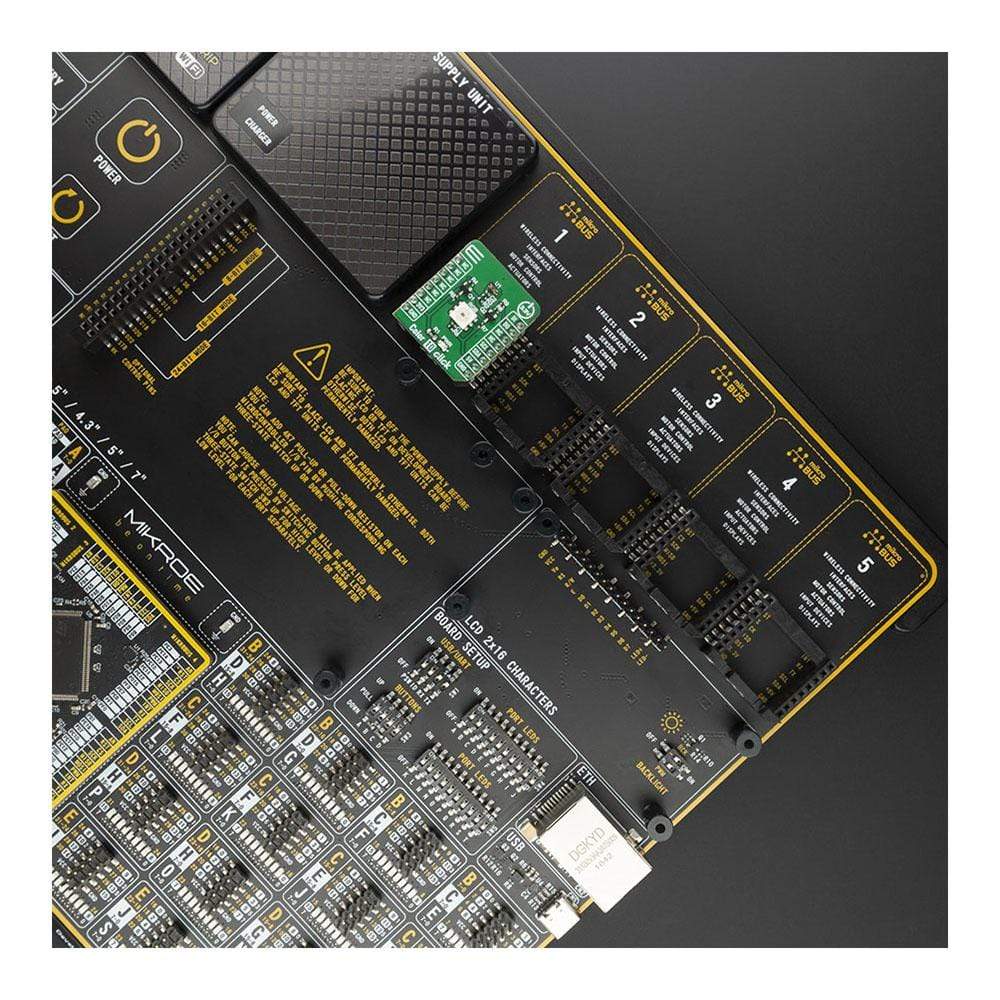
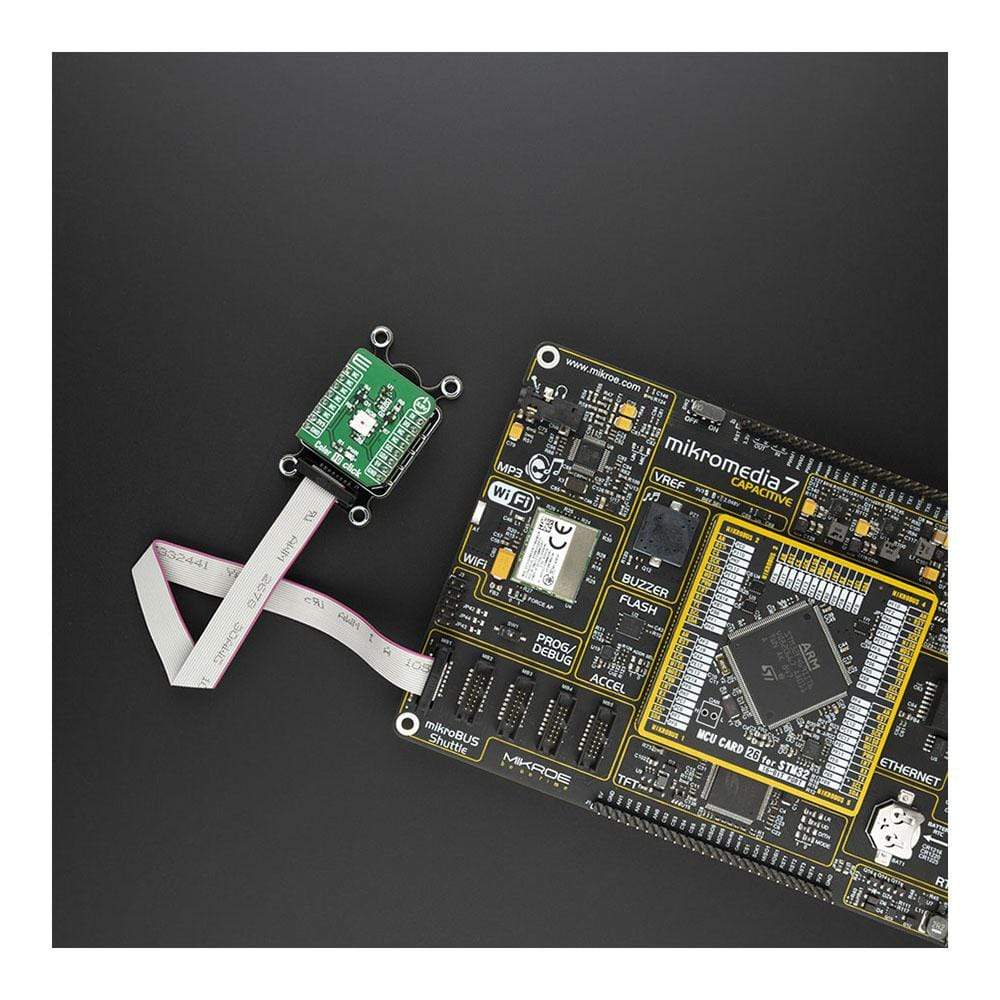
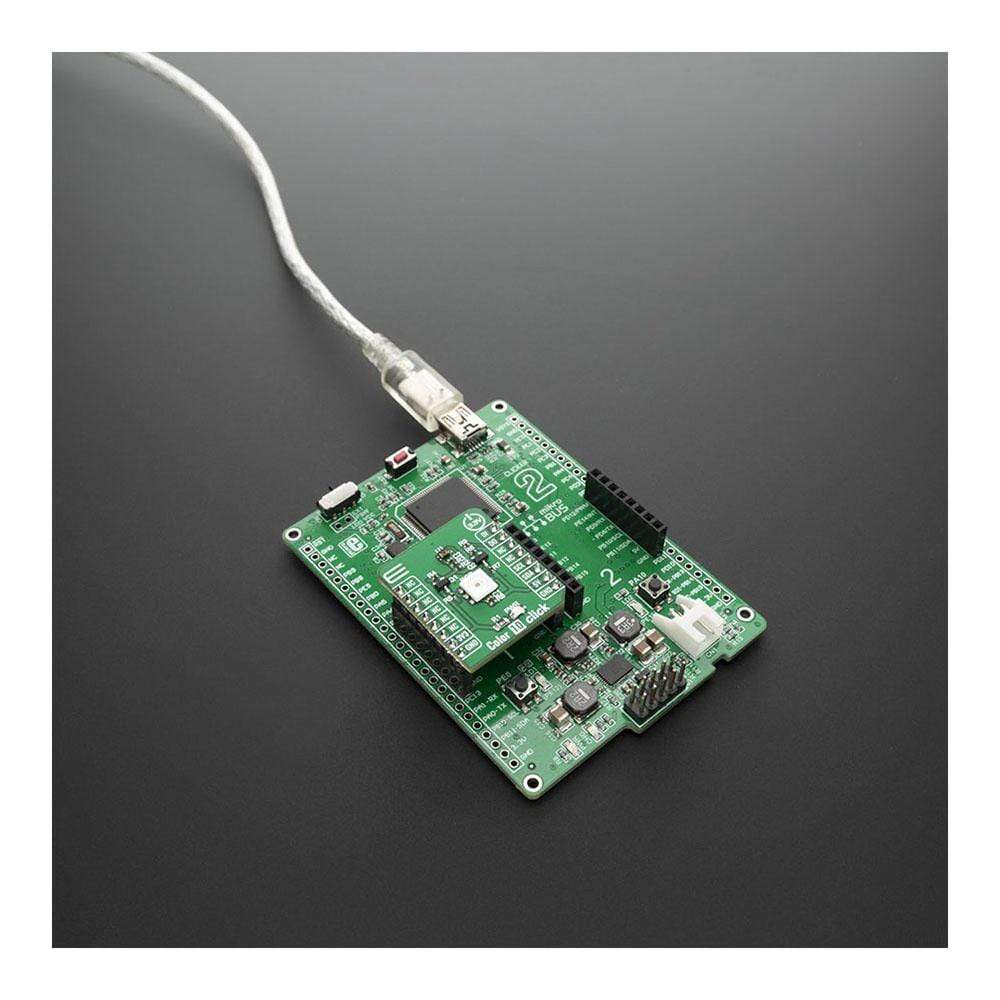
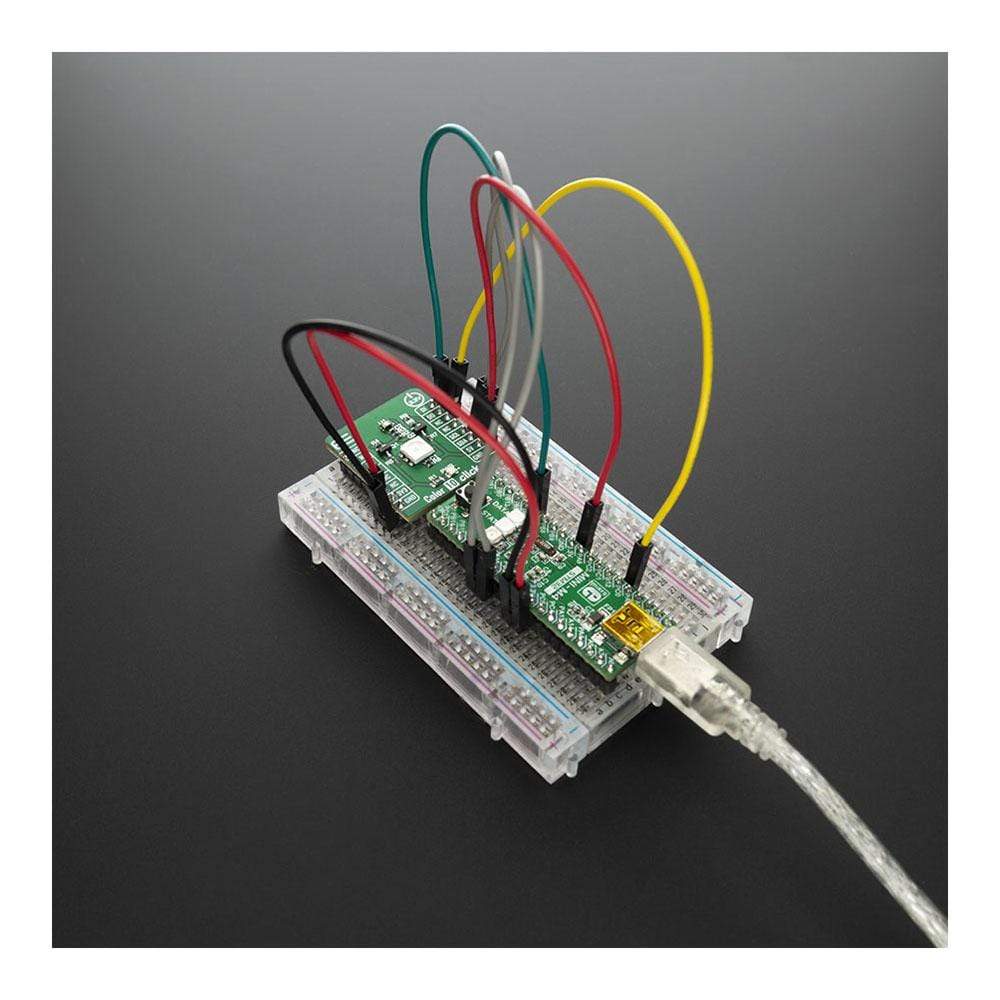
Overview
The Color 10 Click Board™ is carrying a VEML3328 sensor for RGB and IR light-sensing as well as the RGB diode incorporated on the board which makes it a good colour detection device when it's combined with a white LED. The VEML3328 sensor senses red, green, blue, clear and IR light by incorporating photodiodes, amplifiers, and analogue/digital circuits into a single CMOS chip.
With this sensor, the brightness and colour temperature of a display backlight can be adjusted based on the ambient light source, and it can differentiate indoor from outdoor lighting environments.
Downloads
La carte Color 10 Click Board™ est équipée d'un capteur VEML3328 pour la détection de lumière RVB et IR ainsi que de la diode RVB intégrée à la carte, ce qui en fait un bon dispositif de détection des couleurs lorsqu'elle est combinée à une LED blanche. Le capteur VEML3328 détecte la lumière rouge, verte, bleue, claire et IR en incorporant des photodiodes, des amplificateurs et des circuits analogiques/numériques dans une seule puce CMOS.
Grâce à ce capteur, la luminosité et la température de couleur du rétroéclairage d'un écran peuvent être ajustées en fonction de la source de lumière ambiante et peuvent différencier les environnements d'éclairage intérieur et extérieur.
| General Information | |
|---|---|
Part Number (SKU) |
MIKROE-3997
|
Manufacturer |
|
| Physical and Mechanical | |
Weight |
0.016 kg
|
| Other | |
Country of Origin |
|
HS Code Customs Tariff code
|
|
EAN |
8606018718382
|
Warranty |
|
Frequently Asked Questions
Have a Question?
Be the first to ask a question about this.







